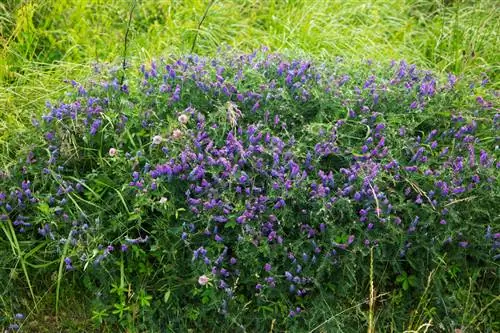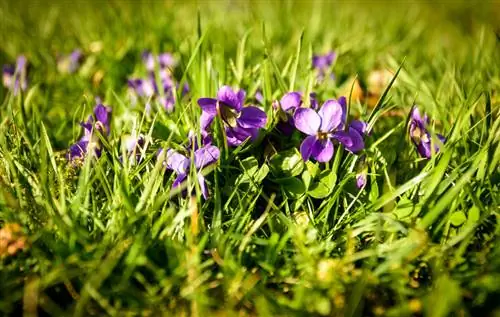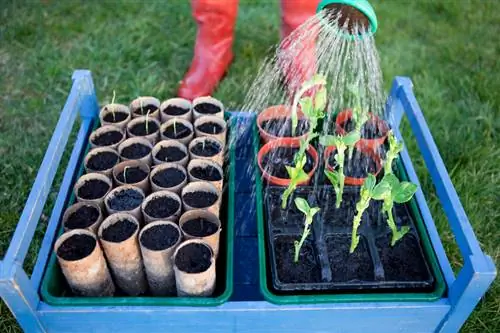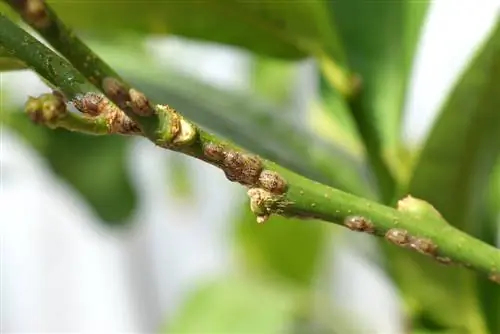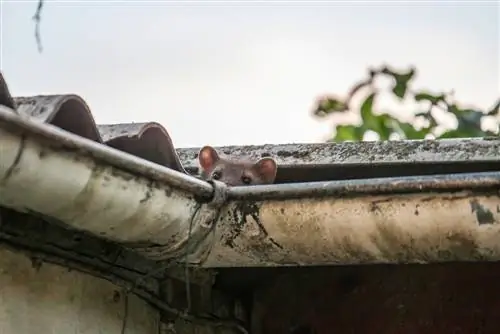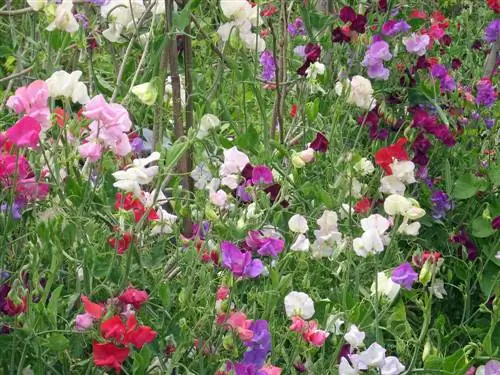- Author admin leonars@hobbygardeners.com.
- Public 2023-12-16 16:46.
- Last modified 2025-01-23 11:20.
Scented sweet peas with their brightly colored flowers that shine far away in beautiful colors are among the most popular cottage garden plants. Relatively easy to care for and easy to cultivate, they decorate numerous green areas. Unfortunately, sweet peas self-seed in abundance and can become a real pest in areas where they feel comfortable.
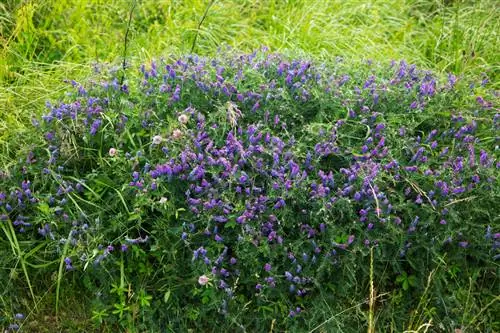
How is vetch controlled as a weed?
To limit the spread of vetch plants in your garden, it is important to remove dead plant parts, regularly pull out overgrown vetches and consider using weed killers to avoid an infestation. However, remember that vetch is ecologically valuable and serves as a food source for insects and birds.
Prevent seed formation
To prevent things from getting that far, it is recommended to consistently remove everything that has bloomed throughout the entire flowering period. Each flower produces a flat pod containing six to eight seeds. Once they have fallen to the ground, the seeds usually survive the Central European winter unscathed and begin to germinate in spring. The vetch is vigorous and within a very short time the small plants reach considerable heights.
You can take advantage of this. In places where you want to care for sweet peas every year, you can let the pods mature and ensure that the plant seeds itself.
Vetch can also thrive lying down
Both the fence vetch and the wild bird vetch not only thrive climbing, but also like to grow lying down in the lawn. Since these plants are relatively undemanding, they can almost completely overgrow areas of the garden that receive little attention. Therefore, pull out sweet peas that grow out of the bed regularly.
There are special weed killers for vetches on the market, which prove to be very helpful if the wild growth is too abundant. However, like all chemical weed killers, use them carefully.
Bird vetches are ecologically valuable
However, it should not be ignored that the seeds of bird vetch contain a lot of protein and are an important source of food for many birds. Numerous wild bees, bumblebees and other insects also appreciate this wild vetch species because it produces a lot of nectar over a period of weeks. If this sweet pea spreads in a corner of the garden where it does not disturb you, you should see the plant from an ecological point of view as a decorative crop.
Tip
The very annoying garden bindweed is often confused with sweet peas. However, sweet peas have butterfly flowers while morning glories produce white, funnel-shaped flowers. The spread of morning glories is difficult to contain because this plant reproduces not only by seeds but also by root runners.

